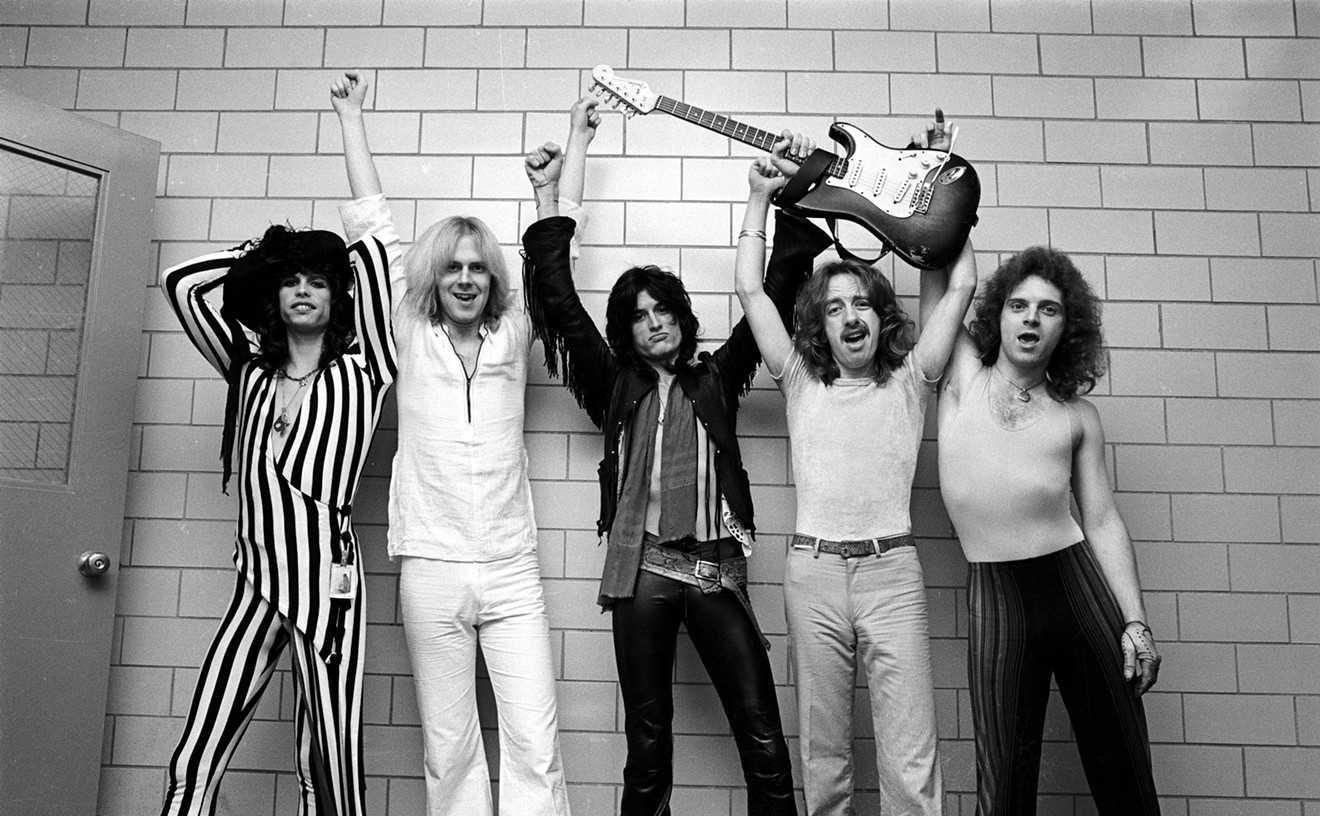While you could write a book about the people who didn't make Lewis' list, there's one--Charlie Rich--who seems especially relevant to his story.
Born in Colt, Arkansas, Charlie Rich wandered into the Sun studio in 1958, on the heels of Jerry Lee's hits, thinking maybe he could get a piece of the action.
When he sang, Rich sounded a lot like Elvis Presley, Sun's biggest hit maker. The songs he wrote, such as his minor 1960 hit, "Lonely Weekends," had a timelessly yearning quality, like the pacing of a big, penned animal. Rich was soon writing songs for Lewis, and even playing session piano for him. Rich and Jerry Lee were in the maternity ward when rock was born, and like most of the early rockers, they found themselves in the desert a few years later, when the Beatles swept all before them. Eventually, they both found a home and a resurrection in country music, where Jerry Lee hit first, in '68, with "To Make Love Sweeter for You."
Charlie hit even bigger five years later with "Behind Closed Doors." It wasn't his greatest song, but everything he did had some of the winning, high, lonesome quality that seeped through the best bluegrass before him. Even when he went after a bigger, uptown beat at Sun, or kicked off the "countrypolitan" style that still rules the country charts in a watered-down form today, his music was at once soulfully broken and whole, invariably about both loss and consolation.
More than any other form of American pop music, country music is about family and community, Jimmy Guterman writes in the notes to Rhino's Jerry Lee Lewis Anthology. "The country audience expects its favored performers to be like family members, and most families have a prodigal child. By accepting recalcitrant performers, country fans remake their families."
But when Charlie came back to country, he didn't step easily into the prodigal's shoes. No sooner did "Behind Closed Doors" chart than he drank himself into a stupor during the taping of a Burt Reynolds special at the Tennessee governor's mansion. Then, in 1975, he was tapped as a presenter for the nationally televised Country Music Association Awards show. Tasked with giving a trophy to Entertainer of the Year, an honor he'd won the year before, Rich opened the envelope and saw the winner was John Denver. He took a cigarette lighter from his pocket and, before God and everyone, burned the citation.
Rich was hemmed in by success. He had written and performed his own music for 20 years, suffering some private misery and struggling creatively. Now, with a hit on his hands and recognition, he seemed to be drowning in guilt. Victory had turned to ashes in his mouth, and no one, not even Rich, could say why.
On his last album, Pictures and Paintings, he recut his song "Feel Like Going Home." Over a swelling gospel choir, Rich baldly proclaims his discontent and faith at once:
I tried and I failed and I'm tired
Everything I done was wrong
Lord I feel like going home.
On July 25, at about the same time Sire Records was shipping Young Blood, Rich, 62, died from a blood clot in his lung. He hadn't had an album out in three years, and his recording career had been spotty since the late '70s.
He expired in a motel room in Hammond, Louisiana, where he'd stopped for the night with his wife on their way down to Florida. And as he lay in that motel bed, seemingly sleeping, Jerry Lee was almost certainly onstage somewhere; playing the piano with his foot, probably, and winking at the girls up front.










